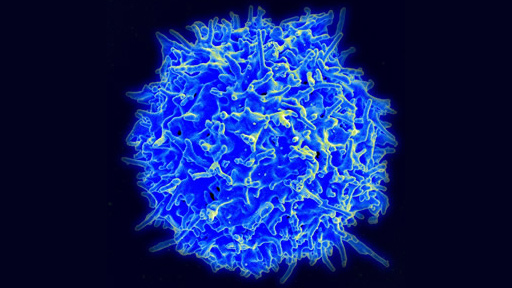To find which genetic variants are associated with a disease, researchers typically conduct a genome-wide association study (GWAS), which compares the genomes of thousands of people with a disease to those without the disease. However, a GWAS can identify hundreds of genetic variants associated with the disease, making it difficult to identify the specific variants that play a role in the disease and to define what that role is.
The new awards, funded by the National Human Genome Research Institute (NHGRI)'s Non-Coding Variants Program and the National Cancer Institute (NCI), will help researchers develop statistical approaches, combine several types of data in the genome, and make predictions about which variants in non-protein-coding genomic regions affect disease susceptibility and response to drugs. Non-protein-coding regions do not contain genes that provide instructions for making proteins. Instead, they contain DNA sequences that help control gene activity - turning genes on and off, for example - and affect which proteins are made and in which tissues.

"Variants in non-coding genomic regions are harder to interpret than variants in the protein-coding regions of genes, which we know much more about," said Lisa Brooks, Ph.D., program director of the NHGRI Genomic Variation Program. "When many variants in a region are associated with a disease, it's important to know what types of data about them can be used to figure out which variants contribute to disease susceptibility."
Dr. Brooks noted that the funded researchers will develop and test statistical approaches to certain diseases, such as cancer and arthritis. These approaches will later be tested in other diseases, and the results will be compared to determine which methods are most accurate at finding genetic variants that affect susceptibility to disease.
"We'd like to develop general approaches to identifying non-coding genetic variants that apply to many diseases," said Mike Pazin, Ph.D., program director in the NHGRI Functional Genomics Program. "We hope that a variety of approaches will provide valuable research directions for others to use."
The following grants, pending available funds, were awarded:
- Yale University, New Haven, Connecticut, $2.39 million, three years
Principal Investigator: Mark Gerstein, Ph.D.
Researchers will develop a computational system to identify rare, inherited genetic variants that cause changes in gene regulation associated with cancer.
- Georgia Institute of Technology, Atlanta, $2.3 million, three years
Principal Investigator: Gregory Gibson, Ph.D.
Researchers will develop computational approaches to identify which genetic variants contribute to inflammatory autoimmune diseases such as Crohn's disease and rheumatoid arthritis.
- Indiana University, Indianapolis, $1.69 million, three years (funded by NCI)
Principal Investigators: Yunlong Liu, Ph.D., and Todd Skaar, Ph.D.
Researchers will develop computational approaches to better predict which genetic variants affect patient response to two chemotherapy drugs, paclitaxel and clofarabine.
- Stanford University, Stanford, California, $2.29 million, three years
Principal investigator: Jonathan Pritchard, Ph.D.
Researchers will develop computational approaches to help predict which genetic variants make people more susceptible to developing rheumatoid arthritis and other autoimmune diseases.
- Albert Einstein College of Medicine, New York, New York, $2.44 million, three years
Principal Investigator: Zhengdong Zhang, Ph.D.
Researchers will study how genetic variants work together with other DNA sequences to regulate particular genes in diseases such as cancer and heart disease.
NHGRI and NCI are both part of NIH.




